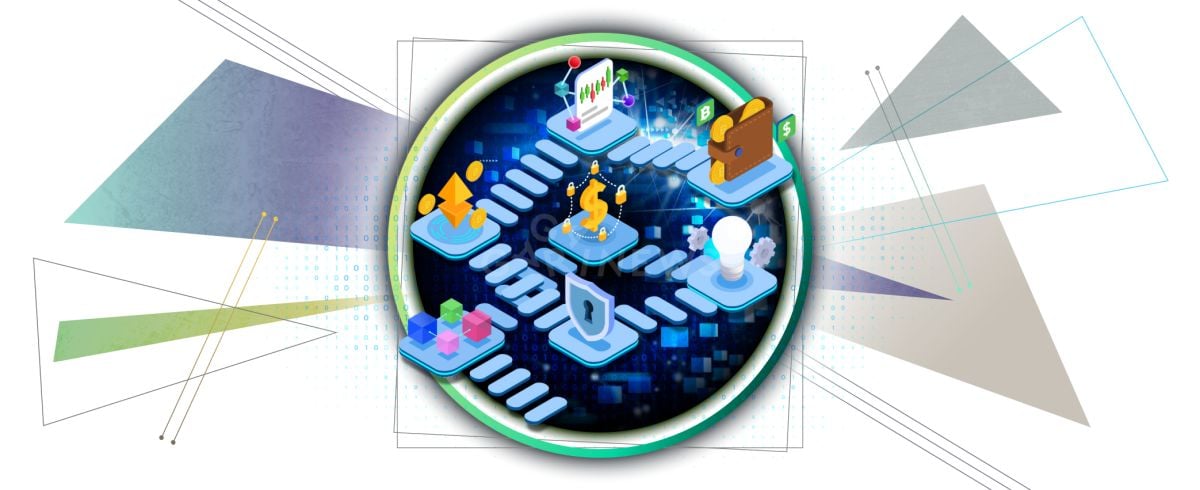What problems does blockchain solve in different industries?

What problems does blockchain solve in finance, supply chain management, healthcare, government, and data storage? Head over to the website to learn more about!
So, what problems does blockchain solve?
Finance
Blockchain features such as immutability, advanced cryptographic techniques to validate information, transparency, and removal of intermediaries make the technology particularly attractive to the financial industry.
Banks in developed countries have already partially introduced distributed ledger technology to speed up processes and reduce costs. This is illustrated by tokenized financial instruments, blockchain ETFs, and national digital currencies.
Blockchain simplifies the international payment procedure, removing its multistep, time-consuming, and costly (fees can be as high as 7%) aspect. The technology enables instant international transactions through decentralization and smart contracts. Since blockchain data cannot be falsified or canceled once recorded in the chain, it enhances security and reliability.
Supply chain management
Supply chains require strategic planning, management and many third parties (raw material suppliers, manufacturers, distributors).
Without additional technology, it's very challenging to ensure the productivity of all the steps and reduce the risk of fraud and financial costs. The advent of artificial intelligence and machine learning has automated some steps, but blockchain could finally upgrade supply chain management.
If each stage is recorded in a single, decentralized database, we can avoid potential contradictions between parties and reduce disruptions in the process. Since blockchain allows incoming information to be monitored online, the risks of product misallocation are reduced to zero.
Since today's blockchains are highly scalable, they can help large companies to address data storage issues.
Previously, GNcrypto extensively covered the role of blockchain technology in supply chain management.
Healthcare
The healthcare system of any country involves centralized storage of information about a patient's personal data and their medical history. The information is stored at the hospital, and if a person moves to another city, s/he will have to spend time and money to restore the data at the new facility. In addition, this data-saving approach is potentially prone to errors and data leaks.
Blockchain solves these issues with decentralization and transparency. A person's medical history, recorded in a shared database, is accessible to different clinics, thus removing the need for medical records.
In this case, encryption and private keys serve as a solution to secure and private storage of patients' medical records.
Distributed ledger technology enables shared access to medical histories that cannot be altered, deleted, or destroyed. Read more about how blockchain can transform the healthcare sector here.
Government and public sector
Politicians are probably the loudest opponents of cryptocurrency and blockchain technology, as they are direct competitors to national currencies and centralization. However, the DLT can solve the age-old problems of the public sector, namely corruption and unfair elections.
In addition, bureaucracy makes government processes slow, expensive, and outdated. This runs the risk of losing confidential information and other important data.
Blockchain enables transparency in the allocation of budgets, and data sharing with no room for fraud or data modification. This open approach can strengthen public trust.
Even though anonymous blockchain voting is resource-intensive and requires special equipment, it can ultimately prevent the risk of unfair elections. Because the data recorded in a distributed ledger cannot be altered or falsified.
GNcrypto extensively covered this topic in the article "Blockchain Voting".
Data storage
Every year, more and more information is being created on the Internet, calling for powerful servers to process and store it. Cloud storage is handling the job so far, but in the future, it might be insufficient. That's where blockchain will come into play, enabling people to store data in a decentralized database. Today, one such data storage solution is IPFS.
Blockchain technology will enhance security, as currently a large amount of data is stored on centralized cloud platforms. Recording information in a distributed ledger will secure it from natural disasters, military conflicts, and other negative external exposures. The key to this is the blockchain's distinctive feature of storing copies of the chain on different computer nodes without relying on intermediaries.
What problems does blockchain solve, in addition to those listed above? It enhances the establishment and protection of IP rights, makes charity and crowdfunding processes transparent, simplifies and automates accounting procedures, insurance and real estate purchases, and reduces the risk of data loss.
Recommended

